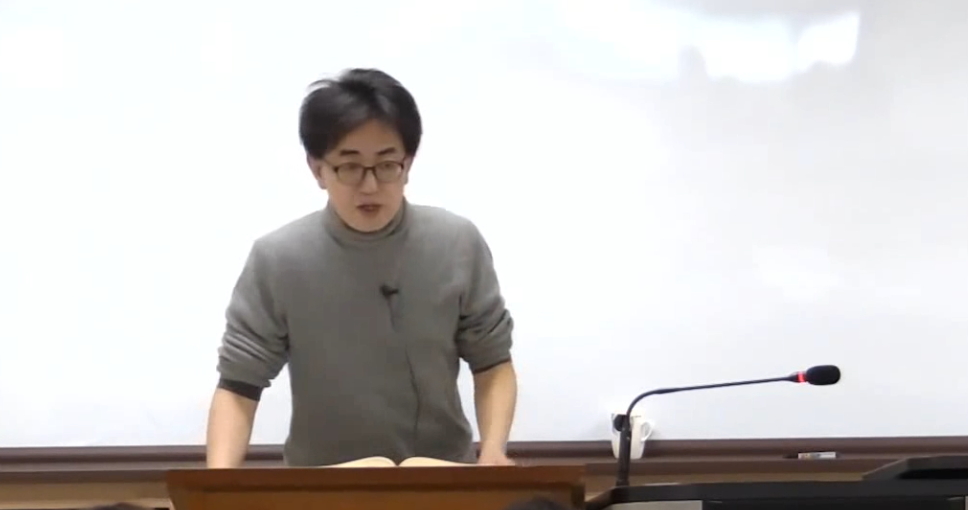본 글은 비교형사법연구 제22권 제2호에 실린 ‘독일 보호감호제도의 위헌성여부에 대한 유럽인권법원 판결’에 이은 두 번째 번역문이다. 이미 지난번에 언급하였듯이 보호감호제도의 위...
http://chineseinput.net/에서 pinyin(병음)방식으로 중국어를 변환할 수 있습니다.
변환된 중국어를 복사하여 사용하시면 됩니다.
- 中文 을 입력하시려면 zhongwen을 입력하시고 space를누르시면됩니다.
- 北京 을 입력하시려면 beijing을 입력하시고 space를 누르시면 됩니다.

부정기형으로 운영되는 독일 보호감호제도의 위헌성 심사 BVerfG, 2 BvR 2029/01 vom 5.2.2004 = The Decision about preventive detention of the German Federal Constitutional Court of 5. Februar 2004
한글로보기https://www.riss.kr/link?id=A107119727
- 저자
- 발행기관
- 학술지명
- 권호사항
-
발행연도
2020
-
작성언어
-
-
주제어
형벌 ; 보호감호 ; 이원주의 ; 인간존엄 ; 소급효금지원칙 ; 신뢰보호원칙 ; 명확성원칙 ; 비례성원칙 ; Strafe ; Sicherungsverwahrung ; Zweispurige Sanktionssystem ; Menschenwürde ; Rückwirkungsverbot ; Vertrauensschutz ; Bestimmtheitsgrundsatz ; Verhältnismäßigkeit
-
등재정보
KCI등재
-
자료형태
학술저널
- 발행기관 URL
-
수록면
247-304(58쪽)
- DOI식별코드
- 제공처
-
0
상세조회 -
0
다운로드
부가정보
국문 초록 (Abstract)
1. 인간의 존엄성 존중(기본법 제1조 제1항)
2. 자유권제한에 대한 비례성 심사(기본법 제2조 제2항에 따른 신체의 자유)
3. 소급형벌의 금지(기본법 제103조 제2항)
4. 명확성 원칙(기본법 제103조 제2항)
5. 법치국가원칙에 기반을 둔 신뢰보호원칙(기본법 제20조 제3항과 결부된 기본법 제2조 제2항)
6. 법률로 정한 법관에 의한 재판 받을 권리의 박탈(기본법 제101조 제1항)
본 판결에서는 연방헌법재판소는 각각의 쟁점에 대해 독일기본법에 위배되지 않는다고 판단하였다. 그러나 연방헌법재판소는 2009년 유럽인권법원판결 이후에 내려진 2011년 판결(BVerfG, 2 BvR 2365/09)에서 당시의 보호감호 규정은 독일기본법에 위배된다고 입장을 바꾸었다. 유럽인권법원의 판결 및 연방헌법재판소의 이러한 두 가지 판결은 동일한 사실과 쟁점에 대해 판단한 것이므로, 각각의 판결에서 해당재판부는 어떤 논거를 제시하였고 어떤 부분의 견해를 변경하였는지를 비교, 분석하는 작업은 우리나라의 보호감호제도의 재수용을 둘러싼 입법론 및 위헌성 판단의 논의에서도 중요한 자료가 될 것이다.
이번에도 번역방식은 특별한 편집이나 생략 없이 판례원문을 순서 그대로 소개하는 방식으로 이루어졌고. 독자가 이해하기 쉽도록 최대한 의역으로 진행되었다. 그리고 각주는 본문에는 없지만 판례원문 내용의 이해를 돕기 위해 필요하다고 생각하는 부분에 한해 역자가 첨가하였다.
본 글은 비교형사법연구 제22권 제2호에 실린 ‘독일 보호감호제도의 위헌성여부에 대한 유럽인권법원 판결’에 이은 두 번째 번역문이다. 이미 지난번에 언급하였듯이 보호감호제도의 위헌성 논란을 둘러싸고 독일에서는 1) 2004년의 연방헌법재판소 판결(BvR 2029/01), 2) 2009년의 유럽인권법원 판결(EGMR, 17.12.2009 - 19359/04) 그리고 3) 2011년의 독일 연방헌법재판소판결(BVerfG, 2 BvR 2365/09)이 중요한 3가지 판결로 손꼽히고 있다. 본 글에서 소개하는 판결은 이 가운데 가장 첫 번째 판결로, 독일의 보호감호제도가 유럽인권법원의 판단을 받게 된 계기가 된 사안이다. 이 판결에서는 10년의 최장구금기간을 폐지한 새로운 보호감호규정과 관련해 다음의 사항이 쟁점으로 다루어졌다.
1. 인간의 존엄성 존중(기본법 제1조 제1항)
2. 자유권제한에 대한 비례성 심사(기본법 제2조 제2항에 따른 신체의 자유)
3. 소급형벌의 금지(기본법 제103조 제2항)
4. 명확성 원칙(기본법 제103조 제2항)
5. 법치국가원칙에 기반을 둔 신뢰보호원칙(기본법 제20조 제3항과 결부된 기본법 제2조 제2항)
6. 법률로 정한 법관에 의한 재판 받을 권리의 박탈(기본법 제101조 제1항)
본 판결에서는 연방헌법재판소는 각각의 쟁점에 대해 독일기본법에 위배되지 않는다고 판단하였다. 그러나 연방헌법재판소는 2009년 유럽인권법원판결 이후에 내려진 2011년 판결(BVerfG, 2 BvR 2365/09)에서 당시의 보호감호 규정은 독일기본법에 위배된다고 입장을 바꾸었다. 유럽인권법원의 판결 및 연방헌법재판소의 이러한 두 가지 판결은 동일한 사실과 쟁점에 대해 판단한 것이므로, 각각의 판결에서 해당재판부는 어떤 논거를 제시하였고 어떤 부분의 견해를 변경하였는지를 비교, 분석하는 작업은 우리나라의 보호감호제도의 재수용을 둘러싼 입법론 및 위헌성 판단의 논의에서도 중요한 자료가 될 것이다.
이번에도 번역방식은 특별한 편집이나 생략 없이 판례원문을 순서 그대로 소개하는 방식으로 이루어졌고. 독자가 이해하기 쉽도록 최대한 의역으로 진행되었다. 그리고 각주는 본문에는 없지만 판례원문 내용의 이해를 돕기 위해 필요하다고 생각하는 부분에 한해 역자가 첨가하였다.
다국어 초록 (Multilingual Abstract)
1. Human dignity (Article 1, Paragraph 1 of Basic Law for the Federal Republic of Germany)
2. Proportionality examination for restrictions on the right to Personal freedoms (Article 2, Paragraph 2 of Basic Law for the Federal Republic of Germany)
3. Ex post facto law (Article 103, Paragraph 2 of Basic Law for the Federal Republic of Germany)
4. The void for vagueness doctrine (Article 103, Paragraph 2 of Basic Law for the Federal Republic of Germany)
5. Protection of reliance in conjunction with rule of Law (Article 2, Paragraph 2, Article 20 Paragraph 3 of Basic Law for the Federal Republic of Germany)
6. Trial by jury (Article 101, Paragraph 1 of Basic Law for the Federal Republic of Germany)
The Federal Constitutional Court in Germany has determined that each issue is not against the fundamental law in Germany. However, the Federal Constitutional Court shifted his ground on the protective detention that is contrary to the fundamental law in the case of the judgement in 2011 (BVerfG, 2 BvR 2365/09) since the European Court of Human Rights has determined in 2009. As the both decisions of the European Court of Human Rights as well as the Federal Constitutional Court covered the same facts and issues, it is necessary to compare the each judgement how to organize the points in an argument or be revised its opinions. This analysis provides a significant point on a discussion about the theory of legislation and judicial review related to the introduction of the protective custody system in Korea.
As the second translation, this paper deals with the judgement of the European Court of Human Rights on the constitutional challenge of the protective detention in Germany that is published in Korean Journal of Comparative Criminal Law (KJCCL), volume...
As the second translation, this paper deals with the judgement of the European Court of Human Rights on the constitutional challenge of the protective detention in Germany that is published in Korean Journal of Comparative Criminal Law (KJCCL), volume 22 (2). As mentioned in the first translation, there exist the significant factors of the judgement on an unconstitutional issue of the protective detention in Germany: i) the judgement of the Federal Constitutional Court in Germany in 2004 (BvR 2029/01), ii) the judgement of the European Court of Human Rights in 2009 (EGMR, 17.12.2009 - 19359/04) and iii) the judgement of the Federal Constitutional Court in Germany in 2011 (BvR 2365/09). In this context, this paper introduces the first judgement that has dealt with the reason why the protective detention of Germany accepted the decision of the European Court of Human Rights. The judgement indicates to the revised protective detention of Germany on the repeal of the 10-year maximum period of judicial custody. The issues are as follows:
1. Human dignity (Article 1, Paragraph 1 of Basic Law for the Federal Republic of Germany)
2. Proportionality examination for restrictions on the right to Personal freedoms (Article 2, Paragraph 2 of Basic Law for the Federal Republic of Germany)
3. Ex post facto law (Article 103, Paragraph 2 of Basic Law for the Federal Republic of Germany)
4. The void for vagueness doctrine (Article 103, Paragraph 2 of Basic Law for the Federal Republic of Germany)
5. Protection of reliance in conjunction with rule of Law (Article 2, Paragraph 2, Article 20 Paragraph 3 of Basic Law for the Federal Republic of Germany)
6. Trial by jury (Article 101, Paragraph 1 of Basic Law for the Federal Republic of Germany)
The Federal Constitutional Court in Germany has determined that each issue is not against the fundamental law in Germany. However, the Federal Constitutional Court shifted his ground on the protective detention that is contrary to the fundamental law in the case of the judgement in 2011 (BVerfG, 2 BvR 2365/09) since the European Court of Human Rights has determined in 2009. As the both decisions of the European Court of Human Rights as well as the Federal Constitutional Court covered the same facts and issues, it is necessary to compare the each judgement how to organize the points in an argument or be revised its opinions. This analysis provides a significant point on a discussion about the theory of legislation and judicial review related to the introduction of the protective custody system in Korea.
동일학술지(권/호) 다른 논문
-
- 한국비교형사법학회
- 김봉수 ( Kim Bong Su )
- 2020
- KCI등재
-
- 한국비교형사법학회
- 도규엽 ( Do Gyuyoup )
- 2020
- KCI등재
-
상해동시범 특례규정과 독일형법의 싸움가담죄 (Beteiligung an einer Schlägerei, § 231 StGB)의 비교
- 한국비교형사법학회
- 성낙현 ( Seong Nak-hyon )
- 2020
- KCI등재
-
준강간 불능미수 성립요건으로서 ‘결과’의 의미 해석 -대법원 2019.3.8. 2018도16002 전원합의체 판결을 중심으로-
- 한국비교형사법학회
- 유주성 ( Jusung Yoo )
- 2020
- KCI등재





 KCI
KCI KISS
KISS






